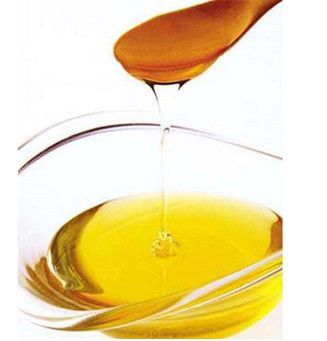Establishment of comprehensive evaluation index for sunflower seed oil quality

The results showed that the increase of conjugated diene, triene, anisidine value, acid value and polar compounds tended to be significant with the prolongation of oxidation time and the increase of temperature (P < 0.05), while the iodine value showed a downward trend. Microwave heating machinery and equipment through the overall change rate of various physical and chemical indicators and unsaturation with oil and common principles The correlation analysis of chemical indices showed that peroxide value, conjugated diene, anisidine value (105 C) or conjugated diene, anisidine value and polar compounds (180 C) could effectively characterize the quality change of sunflower seed oil.
The changes of physical and chemical indexes (peroxide value, conjugated diene, triene, anisidine value, acid value, iodine value and polar compounds) of sunflower seed oil under oxidation conditions at 105 ~180 ~C were studied in the production line of sunflower seed oil. A comprehensive evaluation index for quality change of sunflower seed oil under corresponding conditions.
The comprehensive indices for evaluating the quality change of sunflower seed oil were successfully established and the critical values were determined to be -0. In addition, the principal component analysis of conjugated diene and anisidine values can effectively distinguish the quality changes of oxidized sunflower seed oil at 105 ~180 ~C.
Proper evaluation index of oil quality is very important for ensuring the quality and safety of edible oil. At present, the evaluation of oil quality is mostly based on the physical and chemical indicators (such as peroxide value, acid value, total polar compounds, etc.) in the current national standards. The hygienic standard for edible vegetable oil GB2716-2005 stipulates that peroxide value and acid value of qualified vegetable oil should be within 0.25 g/100 g and 3 mg KOH/g, respectively. GB7102.1-2003 Hygienic Standard for Deep-frying of Edible Vegetable Oil also stipulates that acid value and polar compounds of deep-frying vegetable oil should be limited to 5 mg KOH/g and 27% respectively.
Comparisons show that there are conflicts among some criteria which are judged by a single physical and chemical index, but some criteria are less applicable. For example, the peroxide limit of GB2716-2005 is 0.25 g/100 g (19.7 meq/kg), while the peroxide limit of GB10464-2003 Sunflower Seed Oil is 7.5 mmol/kg (15 meq/kg), No.